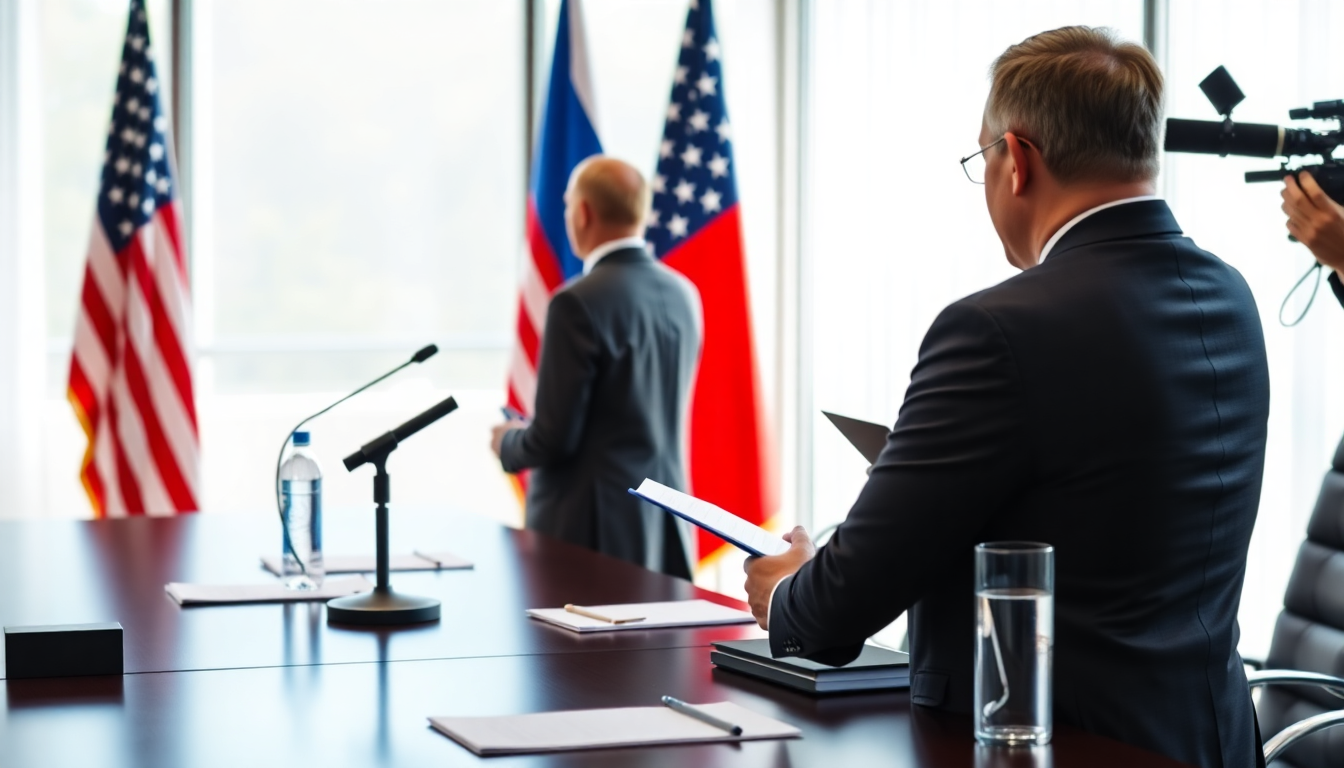Table of Contents
In a recent press conference following a summit in Anchorage, Alaska, Russian President Vladimir Putin echoed former U.S. President Donald Trump’s claim that the ongoing conflict in Ukraine likely wouldn’t have erupted if Trump had won the 2020 election.
This statement not only reveals Putin’s viewpoint but also highlights the intricate and often contentious dynamics of international relations between the U.S. and Russia. As these two leaders engaged in a dialogue about the repercussions of past decisions, Putin’s remarks illuminated the evolving geopolitical landscape since the election.
Putin’s Take on the Ukraine Conflict
During the press conference, Putin asserted, “I can confirm that” the war in Ukraine might have been avoided had Trump remained in office. This assertion came amid a broader discussion regarding U.S.-Russia relations, which Putin argued have significantly worsened since Trump left the presidency.
He pointed out that there were no summits between the two countries in the years that followed, a situation he criticized as harmful to global stability.
Putin also reflected on his past attempts to engage with the Trump administration to avert escalation in Ukraine.
He expressed disappointment that these efforts didn’t yield results, hinting at a belief that proactive diplomacy could have changed the trajectory of events. By underscoring his previous communications with Trump, Putin seems to be crafting a narrative that positions the current conflict as a failure of diplomatic engagement rather than an unavoidable outcome.
Isn’t it fascinating how history can be rewritten through the lens of political narratives?
Understanding the Historical Context and Future Implications
The context of this dialogue is steeped in a tumultuous history of U.S.-Russia relations, especially concerning military conflicts and diplomatic negotiations.
Putin lamented that the relationship has hit its lowest point since the Cold War and expressed hope for a new era of diplomacy should Trump return to the presidency. He praised Trump’s willingness to grasp the historical elements of the conflict, implying that a mutual respect could pave the way for future negotiations.
While Trump’s stance has faced its share of criticism—especially regarding his approach to Ukraine—Putin’s endorsement could resonate with Trump’s supporters, who often see his foreign policy as more favorable toward Russia. This dynamic raises important questions about how U.S. foreign policy might shift if Trump were to retake the presidency in the upcoming elections. The potential implications for Ukraine, NATO, and global security are significant, suggesting that the next few years could be crucial in redefining international alliances and strategies. How might this shift impact your view of global events?
Criticism and Public Perception
The optics surrounding Trump and Putin’s meeting have attracted scrutiny, with critics drawing comparisons to previous encounters involving leaders from Ukraine. Many assert that such interactions could weaken the credibility of U.S. support for Ukraine in the face of Russian aggression. Trump’s remarks about the possibility of preventing the war are contentious, as they imply that blame could be shared between both current and former U.S. leadership. Isn’t it interesting how perceptions of leadership can shape international narratives?
As discussions surrounding the Ukraine conflict continue to evolve, the relationship between Trump and Putin will likely remain a significant point of focus in political discourse. The ramifications of their partnership could sway public opinion and influence policy decisions in the U.S. and beyond, underscoring the complexity of navigating international relations in such a politically charged atmosphere. What do you think this means for the future of global diplomacy?





